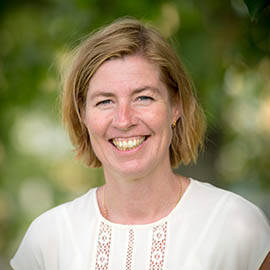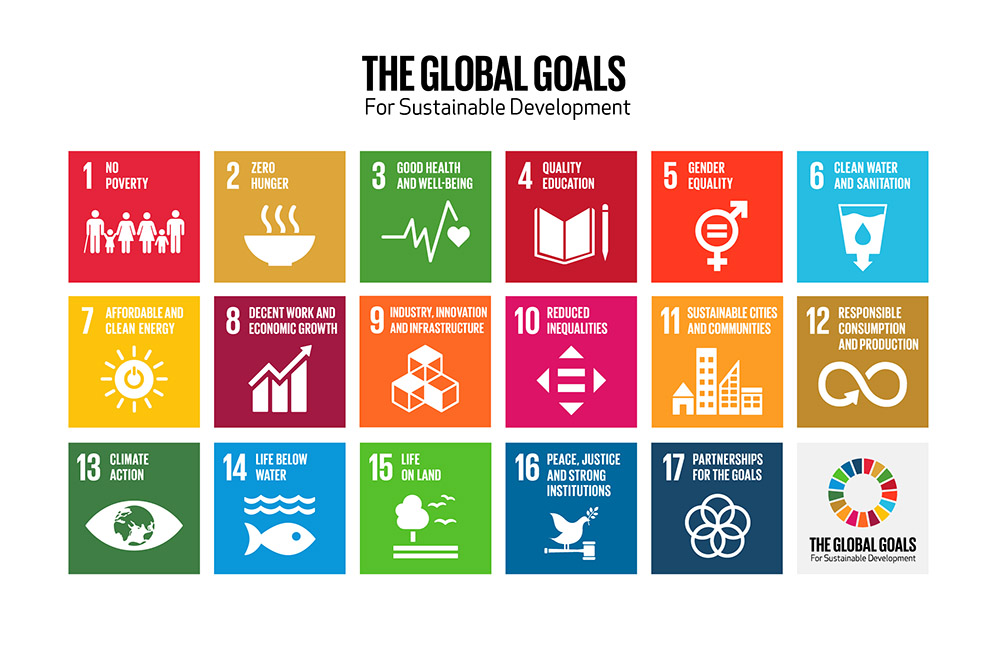(Original Swedish post published 13 April.)
The Vice-Chancellor has appointed six Advisers to the Vice-Chancellor to work with the University management on a number of University-wide issues. These are Campus Gotland (Olle Jansson), internationalisation (Anders Backlund), equal opportunities (Cecilia Wejryd), research infrastructure (Kristina Edström), sustainability (Anna Rutgersson) and good research practice (Stefan Eriksson).
During the spring, the Advisers will appear as guest bloggers here in the Vice-Chancellor’s Blog to write about developments in the areas for which they are responsible. The first guest is Anna Rutgersson, Professor of Meteorology and Section Dean for Earth Sciences, and on top of that, as stated, Adviser to the Vice-Chancellor on Sustainability Issues. Uppsala University’s overall objective is to “gain and disseminate knowledge for the benefit of humankind and for a better world”, through education, research and collaboration. It is difficult to imagine a more relevant area for achieving this objective than sustainable development, in a broad sense of the term.
University for sustainability
April – now light and spring are with us again after months of cold and darkness. It is easy to feel motivated to work for a sustainable future for our world, and for our University. As Adviser to the Vice-Chancellor on Sustainability Issues, it is my privilege to work on University-wide issues of relevance to sustainable development and to promote joint efforts to use our University’s fantastic resources to achieve more in this area.
The Global Goals for Sustainable Development set out in Agenda 2030 are shared objectives that we can use as a starting point for creating a better world for all. The university and higher education sector can potentially do much to address these goals. Naturally, one thing we can do is to limit the direct burden on the climate and environment caused by our own activities and staff. Still more important, however, is our ability to work towards the common goals through the education we give our students and through our research. It is these activities that enable us to achieve a greater impact and wider influence. We must remember in this context that the Global Goals focus not just on ecological but also on social and economic sustainability.

Uppsala University conducts top-quality research in many fields. We could use this research even better to achieve the goal of contributing to a better world. I am convinced that the way forward is to increase opportunities and motivation for research cooperation between disciplinary domains and fields. It is in these border areas that we can find new solutions and research that breaks new scientific ground.
Last December, the Vice-Chancellor approved funding to coordinate a number of research initiatives crossing subject and domain boundaries, under the name of Uppsala University Sustainability Initiatives (UUSI). We have now started the process of defining these initiatives. On 22 May, 13:00–16:00, we are organising a workshop to discuss possible initiatives, and I hope for many creative ideas and enthusiastic participants. Anyone interested can register here (form in Swedish).
Turning to the direct impact on the environment and climate for which the University and its staff are responsible, there are several interesting and difficult questions to work with, and considerable interest among staff and students. One recurrent issue that we are working on concerns staff travel, another is how Uppsala University Foundations Management of Estates and Funds invests the University’s funds and what ethical and other considerations should be taken into account in making these decisions. No investments are now made in companies in the oil industry or the arms industry, for example. Is using investments as a tool the right way for various types of organisations to influence the development towards sustainability? We will discuss this and other questions at a panel debate on sustainable investments on 19 April, together with researchers and representatives from the Swedish Foundation for Strategic Environmental Research (Mistra) and the Council on Ethics of the Swedish National Pension Funds. We would also like to draw attention to Earth Day, which takes place on the following Sunday, 22 April. Everyone is very welcome to participate.
